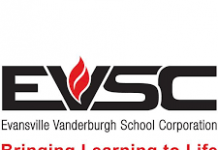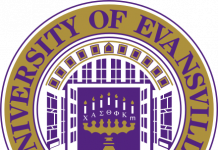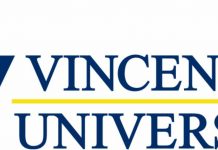VINCENNES, Ind., August 5, 2021 – Vincennes University is one of four universities that has the honor of presenting alongside Association of American Colleges & Universities (AAC&U) at the Assessment Institute in Indianapolis in October. The Assessment Institute, hosted by IUPUI, is the oldest and largest higher education event in the United States focused on assessment and improvement.
The presentation will include VU Director of Assessment Chad Bebee and demonstrate the use of data in evaluating and discussing student learning to determine how well students are achieving learning outcomes.
VU’s Office of Institutional Effectiveness has been recognized by the AAC&U, located in Washington D.C., for its exceptional general education assessment work and use of assessment results to drive improvement.
Dr. Kate Drezek McConnell, AAC&U Vice President for Curricular and Pedagogical Innovation and Executive Director of VALUE, said VU is a potential model for other universities and colleges.
“We are delighted to have Chad Bebee showcase Vincennes University’s work as part of an AAC&U session on the VALUE approach to assessment at the upcoming 2020 Assessment Institute,†she said. “Vincennes University’s use of the VALUE rubrics to assess student learning across three campuses—and the insights that have come from the assessments—has been incredibly informative. The Vincennes University Assessment and Core Curriculum Committee’s work on assignment review is a potential model for other institutions, both two-year and four-year.â€
Student learning outcomes convey what a student can accomplish and know after completing a course or a program of study. Student services staff noted how assessment helped in the pivot to remote learning during the pandemic by identifying what was important to help students learn through a transition.
According to Bebee, “One of the things I am proud of for VU, and I think the AAC&U has noted, is that we as an institution have undertaken many processes to improve ourselves, not just to try to improve students.â€
Founded in 2011, the Office of Institutional Effectiveness is committed to collecting and studying data that support students and student learning. It documents and measures data that captures what students know, value, and can do.
Assessment complements the work of the Diversity, Equity, and Inclusion institutional committee in addition to the Office of Curriculum and Instruction to develop, integrate, and assess a diversity and cultural competence outcome in general education curricula.
The IE Office continues to strengthen the coordination with Dual Credit, Project Excel, and Military Education. It is working with Dual Credit to embed program assessment within certificate programs in the next academic year.
Bebee said, “We have to make sure we are looking at the data and asking ourselves, ‘Why did we hit our mark, and how well? How much did we miss it by? What can we do to try to integrate improvements? Whether that is improvements in the curriculum, instruction, assessment, and the whole cycle of things that might make students more successful or make us more successful with students. Students can only be as successful as you set them up to be.â€
While some institutions struggled to undertake academic outcomes assessment during the pandemic, VU’s programs adapted and were able to complete nearly all the assessed projects planned for students despite the transition to virtual instruction.
During the COVID-19 lockdown, 100 percent of staffed academic programs generated and implemented an assessment plan.
VU’s instructional assessment culture is on the right track and is ahead of some other institutions in terms of faculty engagement.
Faculty involvement in assessment improvement is essential to improving teaching and learning, and to enhance the institution’s effectiveness. VU’s instructional assessment prides itself on the high level of engagement by faculty members.
“Without the engagement of the talented faculty across VU, this office could not function,†Bebee said. “We rely heavily on them to gather this data. Faculty and staff spend a lot of time and energy doing assessment work for this office on top of everything else they have to do. It’s pretty astounding. It takes a monumental amount of effort to maintain outcome assessment, and that means this office, faculty, staff, and the administration.â€




